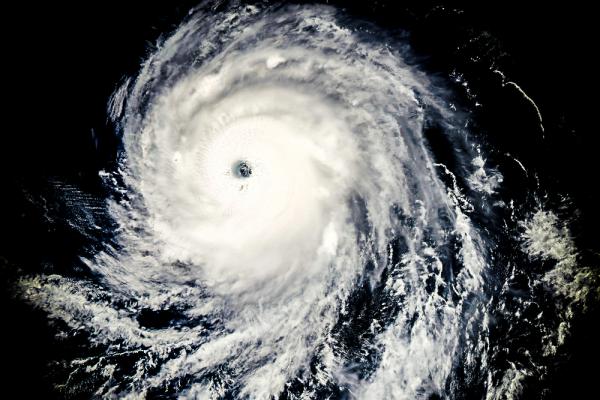This month of April is Earth Month, and in the Christian church, we continue to celebrate the Easter season. This is an appropriate convergence as we celebrate Jesus’ making all of creation new.
In my own denomination, the Evangelical Lutheran Church in America, we use the tagline “God’s work, our hands” to describe how we live in service for the life of the world. Today, more than ever, God’s work for the redemption of creation needs our hands desperately.
Some of the most formative years of my ministry were spent in Madagascar, where I served as a missionary with my family from 1988 to 1998. Madagascar is a beautiful place, and I was blessed to serve alongside many gracious and hospitable people. There are significant challenges, however, as nearly 90 percent of the 23 million inhabitants live on less than $2.00 per day, and the infrastructure in many areas is lacking.
This week, category 5 tropical Cyclone Fantala has been hovering close to Madagascar, whipping strong winds along the northern shores. On April 20, meteorologists declared that Cyclone Fantala made history as the strongest-known storm ever recorded in the Indian Ocean. Madagascar has repeatedly been threatened by severe weather, and with climate change, super-storms are likely to become more frequent and menacing. Yet Madagascar has little infrastructure to adapt to and cope with severe weather. Now, we have a way to help countries like Madagascar and others which are most vulnerable to intensifying storms.
The Green Climate Fund was established to help countries that are least responsible for causing climate change, and least economically able to cope with it. The core purpose of the Green Climate Fund is building the capability of "developing nations" (as defined by the United Nations) to limit or reduce their greenhouse gas emissions and to adapt to the unavoidable impacts of climate change.
The Green Climate Fund is an independent entity under the umbrella of the World Bank that has already established strong fiduciary standards and safeguards. It is accountable to a board with representatives from the U.S. government and other donor and recipient governments. It includes high levels of transparency and accountability in its structure and governing principles to prevent corruption.
So far, more than $10 billion in funding pledges for the Green Climate Fund have come from countries representing diverse regions and income levels. In addition to the U.S. pledge of $3 billion, pledges have come from countries ranging from Germany and Japan to Korea and Mexico and from France and Switzerland to Colombia and Peru.
Financially supporting the Green Climate Fund means the US not only helps countries reduce carbon pollution and strengthen resilience to climate change. Our nation’s support is also likely to serve as a catalyst to encourage other countries and private financiers to contribute to the Green Climate Fund. Central to the Green Climate Fund’s design is a private sector facility that will allow the use of innovative financial instruments to unleash the power of the private sector – including leading US companies – to help address climate change. In early March 2016, the United States released its first contribution of $500 million from the State Department to the Green Climate Fund, and the Christian community affirmed it.
Some members of Congress, including my own senator Cory Gardner (Colo.), have expressed a desire for transparency and accountability in the funding authorization for the Green Climate Fund. I agree. As people of faith, transparency and accountability are important values to uphold in our common global community. That is why we would like our elected officials to proactively authorize the full $750 million in funding for the Green Climate Fund during the appropriations process.
This should not be a partisan issue. Sen. Susan Collins of Maine and Sen. Mark Kirk of Illinois are two Republicans who have publicly endorsed investment in the Green Climate Fund for Fiscal Year 2017.
The United States has historically been the world’s single biggest emitter of climate-changing greenhouse gasses. We have done the most harm. Countries like Madagascar are feeling the impacts. We know we have a moral responsibility to rectify climate injustice. Religious communities have made investment in the Green Climate Fund a top advocacy priority for the past two years. For Fiscal Year 2016, 84 faith-based organizations called on the U.S. Congress to release FY 2016 funds, and for Fiscal Year 2017, more than 120 faith organizations made the request for $750 million to be released to the Green Climate Fund. This year’s letter included major religious bodies such as the U.S. Conference of Catholic Bishops, the Jewish Council for Public Affairs, the National Council of Churches, and the Evangelical Environmental Network.
We are an Easter people, and we are called to act with joy to renew God’s creation. Imagine a world where countries like Madagascar are prepared to be resilient in the face of any storm, and where the sun and wind offer an abundance of energy. Investment in the Green Climate Fund is a step towards making such a world possible.
Got something to say about what you're reading? We value your feedback!
